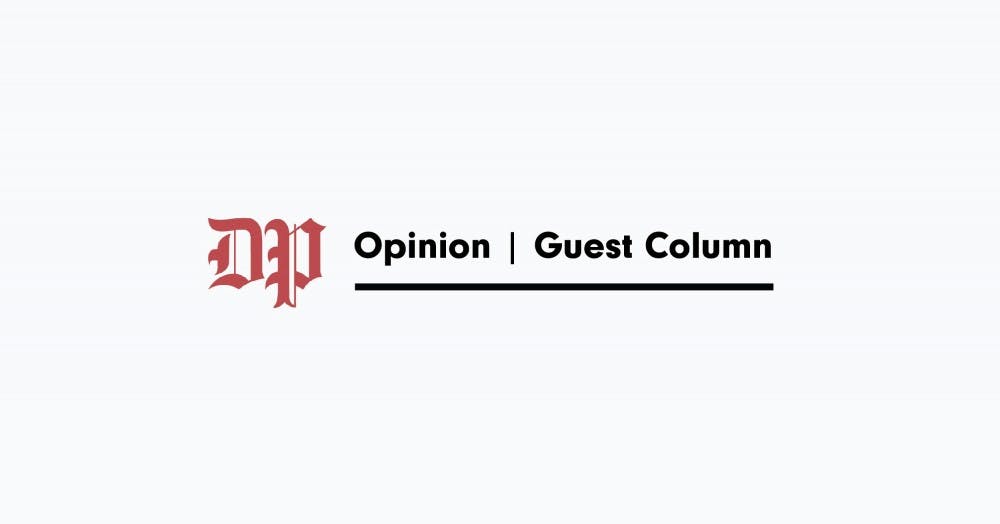Benjamin Franklin argued for the importance of free discourse by noting “that when Truth and Error have fair Play, the former is always an overmatch for the latter.” Considering the administration’s opaque decision on fossil fuel divestment, Penn is not living up to its founder’s values.
Last Wednesday at the University Council Open Forum, Fossil Free Penn representative Zach Rissman extended an invitation to one or more members of the University Board of Trustees Executive Committee to engage in an open, public forum with members of FFP during the week of March 13 to discuss fossil fuel divestment. By moving away from a series of interactions characterized by secrecy and off-the-record meetings, Penn would live up to its claim of valuing open discourse.
Historically, Fossil Free Penn has engaged in good-faith dialogue. After a referendum that garnered support of 87.8 percent of the voting student body, in October 2015 Fossil Free Penn completed the official process and submitted a 50-page proposal to consider divestment from the top 200 fossil fuel companies. This proposal directly addressed the official criteria for divestment set out by the trustees. In June 2016, the ad hoc committee (chaired by David Roberts, a senior executive at an investment firm with a “focus on investments in oil and gas”) released a non-published report that recommended against divestment to the trustees. Eleven months later, in September 2016, the Board of Trustees released their decision to reject the proposal, with a statement as long as a tweet.
For a committee consisting of leading academics, Penn-trained students and successful industry professionals, one would expect a rigorous rebuttal of the Fossil Free Penn proposal, based on qualitative and quantitative evidence. However, in spite of Penn’s commitment to intellectual vigor, the committee report’s only statement regarding the proposal was an asserted claim of 19 words, without supporting data or logic: “The Committee unanimously found that the FFP Divestment proposal did not meet the criteria set forth in the Guidelines.”
The lack of concrete reasons as to why the proposal was inadequate slights Penn’s own value of open discourse; how could a decision as complex as divestment be answered in just one sentence? Does a proposal with the support of 87.8 percent of voters not warrant even an outline of the counterarguments? Many argue that Penn has a duty to remain out of political matters; however, either choice made in regards to fossil fuel divestment is inherently political. By choosing not to divest, Penn actively supports the status quo of companies funding anti-climate lobbying. As such, Penn has already made a political statement, and, quoting the Penn College Republicans representative from the University Council Open Forum on Feb. 22, Penn “must remain an open forum for political debate.”
Following the sit-in of College Hall by Fossil Free Penn, the campaign has been able to meet with the administration and investment officers, but administrators have demanded all meetings to be completely off-the-record. With no public statements, forums or discussions, the veil of secrecy is an insult to open discourse that the University supposedly values. In order to engage the Penn community that clearly is concerned with climate change — we are all wondering why it is 75 degrees in February — the administration should be more transparent with its stance on a topic that will affect the entire planet. If Penn wants to tout itself as a “marketplace of ideas,” it should act like it — and interact with the community in a constructive and straightforward manner.
For corporations, the “business judgement rule” grants power to managers to make important decisions without having to resort to open stakeholder dialogue on every issue. However, this topic is not just any minuscule disagreement that stakeholders shouldn’t be consulted on. It is understandable that Penn may disagree with stakeholders and choose not to divest, but not even starting the discussion in the first place is where the problem lies. Penn (which is in fact not a corporation) should strive to be an intellectual agora of free discussion and engage openly and honestly with stakeholders before making any decisions.
Regardless of the topic, intellectual discussion, rigorously defended arguments and open discourse should be highly valued at an academic institution such as Penn. Instead of dismissive responses, the administration should engage more openly and with more effort with the public on topics that concern much of the Penn community.
JULIA LESKO is a College freshman from Venice, Fla., considering studying economics and environmental science. Her email address is leskoj@sas.upenn.edu. She is a policy coordinator for the Fossil Free Penn campaign.
The Daily Pennsylvanian is an independent, student-run newspaper. Please consider making a donation to support the coverage that shapes the University. Your generosity ensures a future of strong journalism at Penn.
Donate







